-
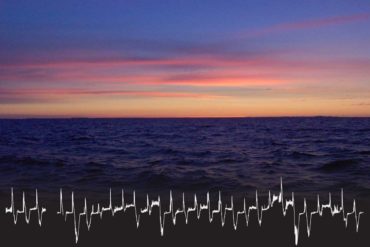 Charles Stewart Mott Foundation PartnershipClimate ChangeCollaborationFeature HomepageFish, Birds and AnimalsLake MichiganLatest NewsNewsResearch, Data and TechnologyScience, Technology, Research
Charles Stewart Mott Foundation PartnershipClimate ChangeCollaborationFeature HomepageFish, Birds and AnimalsLake MichiganLatest NewsNewsResearch, Data and TechnologyScience, Technology, ResearchReport: Lake Michigan is ‘running a fever.’ More storms, less fish possible.
-A federal study finds that climate change is warming even the deepest waters of big lakes, which could shorten their winters and have a ripple effect on their health.
20 -
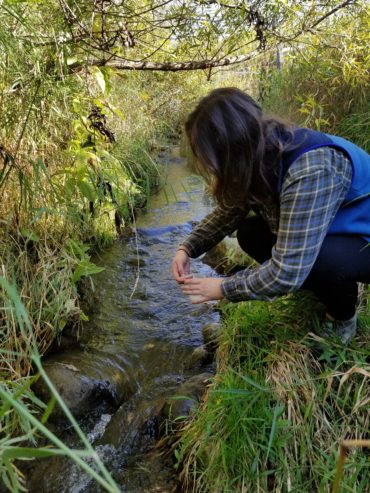 Feature HomepageFish, Birds and AnimalsLatest NewsNewsOntarioResearch, Data and TechnologyScience, Technology, ResearchSharon OosthoekTorontoWater Quality and Restoration Efforts
Feature HomepageFish, Birds and AnimalsLatest NewsNewsOntarioResearch, Data and TechnologyScience, Technology, ResearchSharon OosthoekTorontoWater Quality and Restoration EffortsSalt Levels: The effects of wintertime de-icing linger in Toronto-area rivers in the summer
-A study found high enough amounts of chloride in four Greater Toronto Area rivers to put at least two-thirds of aquatic life at risk during early stages of their development.
-
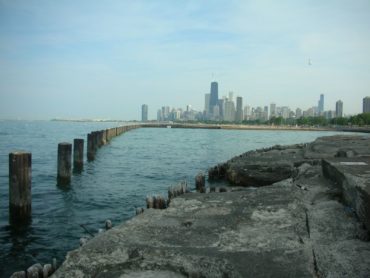 Feature HomepageInvasive SpeciesLatest NewsNewsResearch, Data and TechnologyScience, Technology, Research
Feature HomepageInvasive SpeciesLatest NewsNewsResearch, Data and TechnologyScience, Technology, ResearchEarly Detection: When it comes to Great Lakes invasives, prevention is the only cure
-How to prevent invasive species from getting their hooks into the Great Lakes is an issue plaguing researchers and government agencies alike.
-
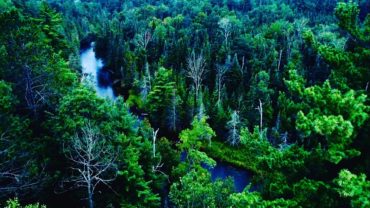 Charles Stewart Mott Foundation PartnershipCollaborationFeature HomepageInfrastructureInvasive SpeciesLatest NewsMichiganNewsNews Director's Pick-of-the-WeekRecreation and TourismResearch, Data and TechnologyTraverse City
Charles Stewart Mott Foundation PartnershipCollaborationFeature HomepageInfrastructureInvasive SpeciesLatest NewsMichiganNewsNews Director's Pick-of-the-WeekRecreation and TourismResearch, Data and TechnologyTraverse CityLast dam standing: Traverse City fish restoration project on the ropes
-The FishPass project uses technology that would allow migratory fish to freely travel the river while keeping out invasive species. But some residents are suing, saying it would alter a local park.
-
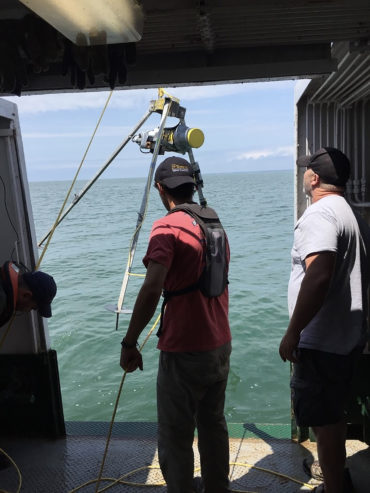 APClimate ChangeFeature HomepageFish, Birds and AnimalsLake ErieNewsResearch, Data and TechnologyScience, Technology, Research
APClimate ChangeFeature HomepageFish, Birds and AnimalsLake ErieNewsResearch, Data and TechnologyScience, Technology, ResearchScientists: Climate-whipped winds pose Great Lakes hazards
-Powerful gusts linked to global warming are damaging water quality and creating a hazard for fish in Lake Erie and perhaps elsewhere in the Great Lakes, according to researchers.
-
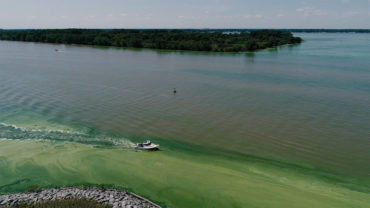 Algae BloomsCharles Stewart Mott Foundation PartnershipCollaborationDrinking WaterLake ErieLatest NewsMichiganNewsResearch, Data and TechnologyScience, Technology, ResearchWater Quality and Restoration Efforts
Algae BloomsCharles Stewart Mott Foundation PartnershipCollaborationDrinking WaterLake ErieLatest NewsMichiganNewsResearch, Data and TechnologyScience, Technology, ResearchWater Quality and Restoration EffortsU of M team makes discovery about Lake Erie dead zone
-New research finds the annual dead zone in Lake Erie is getting a boost that makes it worse very quickly.
-
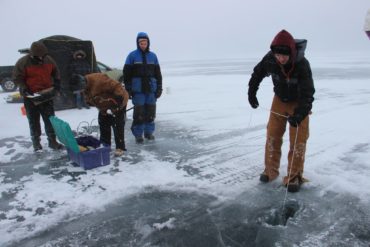 Algae BloomsClimate ChangeDrinking WaterLake ErieLake SuperiorLatest NewsMinnesotaNewsResearch, Data and TechnologyScience, Technology, ResearchSharon OosthoekWisconsin
Algae BloomsClimate ChangeDrinking WaterLake ErieLake SuperiorLatest NewsMinnesotaNewsResearch, Data and TechnologyScience, Technology, ResearchSharon OosthoekWisconsinLake Superior Winter: Researchers belatedly turn their eyes to the impact of warming winters
-Over the past decade or so, scientists have been playing catch up when it comes to winter data, and they are discovering that winter conditions play a big role in determining what happens the following summer.
-
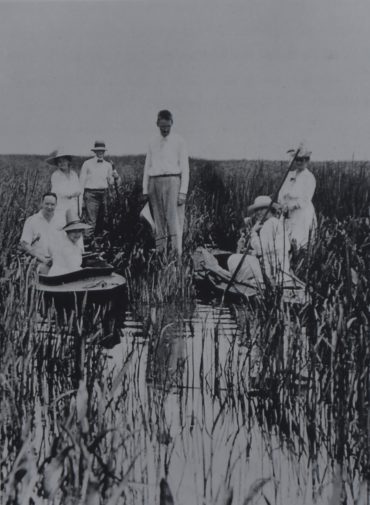 ClevelandFeature ClevelandFish, Birds and AnimalsJames ProffittLatest NewsNewsOhioRecreational Hunting and FishingResearch, Data and TechnologyScience, Technology, Research
ClevelandFeature ClevelandFish, Birds and AnimalsJames ProffittLatest NewsNewsOhioRecreational Hunting and FishingResearch, Data and TechnologyScience, Technology, ResearchWinous Point: Conservation and research play key roles in history of one of the oldest hunting clubs
-While hunting has been a hallmark of the Winous Point Shooting Club for more than 150 years, its true nature leans more toward conservation – especially since the creation of the Winous Point Marsh Conservancy two decades ago.
-
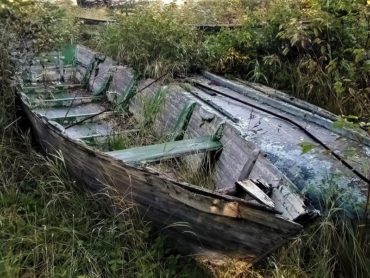 Charles Stewart Mott Foundation PartnershipClimate ChangeDrinking WaterFish, Birds and AnimalsIndigenous CommunitiesInvasive SpeciesLake SuperiorLatest NewsMichiganNewsResearch, Data and Technology
Charles Stewart Mott Foundation PartnershipClimate ChangeDrinking WaterFish, Birds and AnimalsIndigenous CommunitiesInvasive SpeciesLake SuperiorLatest NewsMichiganNewsResearch, Data and TechnologyThe future of Lake Superior with climate disruption
-With warming temperatures, fluctuating water levels and a series of extreme storms, Lake Superior is undergoing dramatic alterations amid climate change.
-
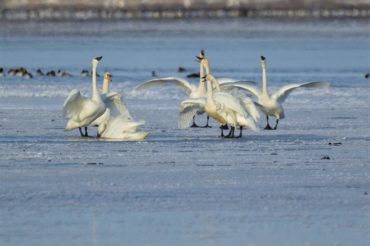 Charles Stewart Mott Foundation PartnershipClimate ChangeDrinking WaterFish, Birds and AnimalsLatest NewsMichiganNewsRecreational Hunting and FishingResearch, Data and Technology
Charles Stewart Mott Foundation PartnershipClimate ChangeDrinking WaterFish, Birds and AnimalsLatest NewsMichiganNewsRecreational Hunting and FishingResearch, Data and TechnologyOn Michigan’s inland lakes, ice fishing with less ice, and fewer fish
-Warming waters are hard on some fish, such as walleye, and more favorable to others, such as smallmouth bass. With so many environmental stresses, it’s difficult to gauge the future of individual lakes.

